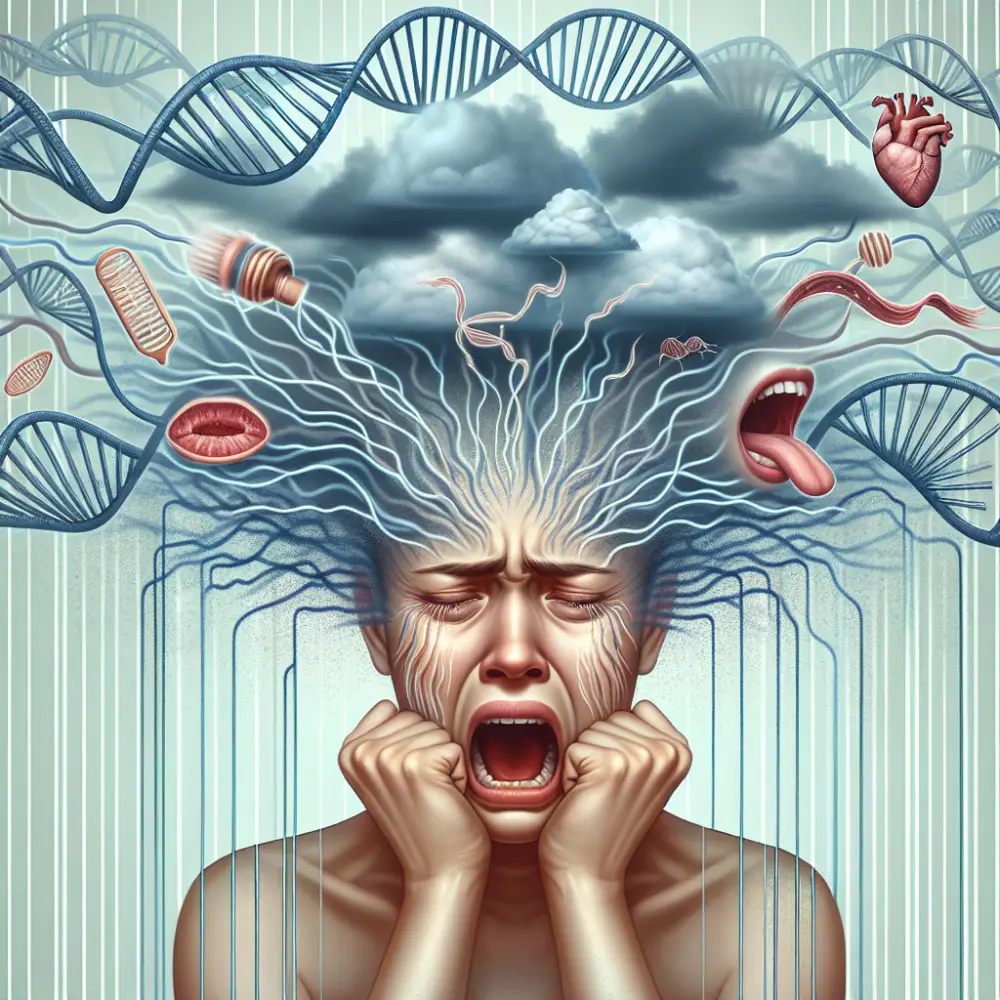Genetic Links Between Misophonia and Psychiatric Disorders


Misophonia Has Genetic Links to Anxiety and Depression, Study Finds
Most people cringe at the sound of nails scraping a chalkboard, but for individuals with misophonia, everyday noises like slurping, snoring, breathing, and chewing can provoke an intense emotional response.
A 2023 study suggests that misophonia is more widespread than previously believed and may have genetic links to anxiety, depression, and PTSD. Research from Europe has strengthened the idea that this condition has a biological basis, overlapping with psychiatric disorders.
Researchers, led by psychiatrist Dirk Smit from the University of Amsterdam, analyzed genetic data from the Psychiatric Genomics Consortium, UK Biobank, and 23andMe databases. Their findings indicate that individuals who self-identify as having misophonia are more likely to have genetic markers associated with psychiatric disorders, including tinnitus—a persistent ringing in the ears that is often linked to psychological distress.
Genetic Connections to Psychiatric Conditions
Patients with tinnitus frequently exhibit symptoms of depression and anxiety, and the study further revealed genetic overlaps between misophonia and PTSD. According to Smit, "Genes that give a sensitivity to PTSD also increase the likelihood of misophonia, suggesting a shared neurobiological system. This implies that treatment techniques used for PTSD might also be effective for misophonia."
Although these genetic correlations do not confirm that misophonia shares identical mechanisms with these disorders, they do suggest some common risk factors.
Prior research found that individuals with misophonia tend to internalize their distress. Smit's 2023 study supports this, highlighting strong links between misophonia and personality traits such as worry, guilt, loneliness, and neuroticism. Reactions to triggering sounds range from mild irritation to extreme distress, sometimes severely affecting daily life.
Personality and Neurobiological Factors
Smit and his team suggest that misophonia may not stem from an outward expression of anger but rather from internal guilt associated with feeling irritation and rage. Interestingly, their research found that individuals with autism spectrum disorder (ASD) were less likely to experience misophonia. Since people with ASD often have a decreased tolerance for sounds, this finding was unexpected. The researchers propose that misophonia and ASD are relatively independent conditions when it comes to genetic variation.
"Our results suggest that different forms of misophonia may exist," the researchers note, "one that is driven by conditioned responses to specific trigger sounds and moderated by personality traits."
Future Research and Implications
Since the study’s data predominantly came from European participants, its findings may not necessarily apply to other populations. Furthermore, because misophonia was self-reported rather than clinically diagnosed, there is a possibility of bias in the results. However, the study lays the groundwork for future research into the biological underpinnings of misophonia.This research was published in
For students interested in exploring the fascinating world of neuroscience, psychology, and genetics, mycoursefinder.com provides expert guidance on choosing the right study programs. Our dedicated agents assist with study, visa, and migration matters, ensuring students achieve the best educational outcomes. Apply now through mycoursefinder.com to secure your future in groundbreaking research and innovation!










